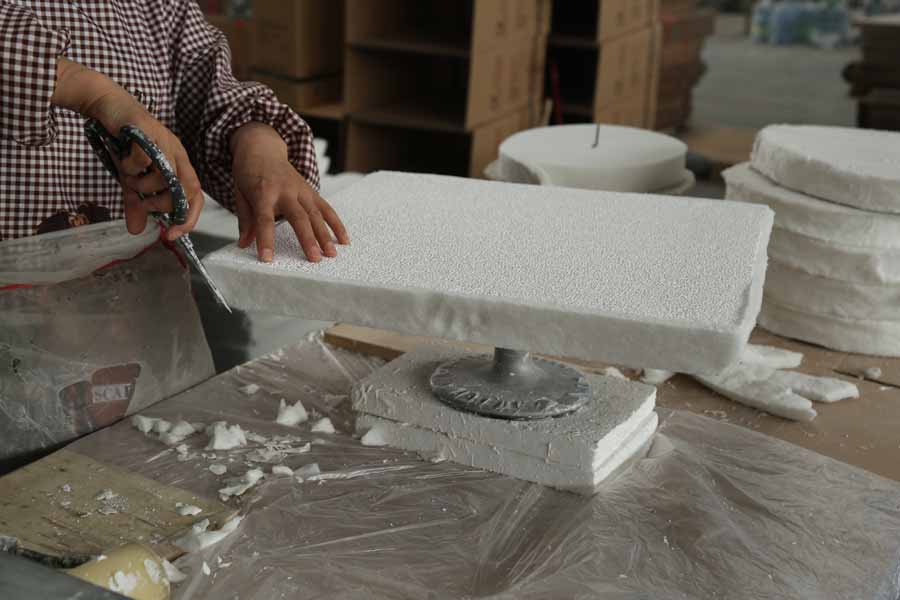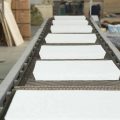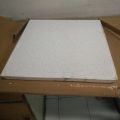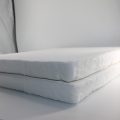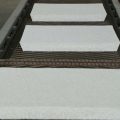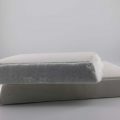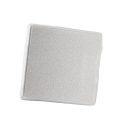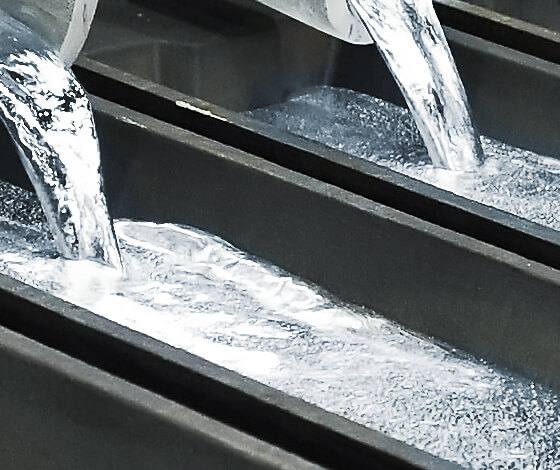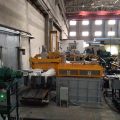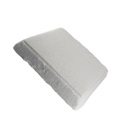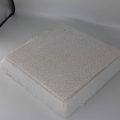Melt Aluminum Ceramic Foam Filters are mainly used in the production of metal aluminum and aluminum alloy castings. Molten metal filtration technology can effectively remove large inclusions in molten aluminum and adsorb tiny impurities.
The alumina ceramic filter can improve the surface quality of aluminum alloy castings, improve its structure, and increase the yield of castings.
In the production of castings, casting defects caused by non-metallic inclusions account for 50% to 60% of the total number of rejects. Inclusion defects not only seriously reduce the mechanical properties of the castings, but also have an adverse effect on the processing performance and appearance of the castings.
Purifying liquid casting alloys and reducing or eliminating various non-metallic inclusions is the key to obtaining high-quality castings. The aluminum liquid filter can effectively achieve the purpose of purifying the casting alloy liquid.
Alumina has a relatively high coefficient of linear thermal expansion (8.0×10-6 /°C), and low heat resistance such as monolithic alumina, foam ceramic filters, etc., due to the high temperature stress caused by the combination of thermal gradients. Uniform heating and high thermal expansion coefficient.
In the process of preheating and initial contact with molten metal, the reticulated ceramic foam filter material may have cracks or cracks, so that the filter material enters the steel ingot or billet and becomes an inclusion.
In addition, when the alumina-based ceramic foam filter is preheated and used, due to the high thermal expansion coefficient of the filter, a large transverse compressive stress will be generated, which will cause the filter to be damaged during compression.
Melt Aluminum Ceramic Foam Filters are designed to ensure the high purity of aluminum alloy blank castings in metallurgical plants, and are also used to filter aluminum castings in foundries.
The filter has a three-dimensional structure of interconnected pores, forming a labyrinth of ceramic filter bodies. The cast filter is characterized by a homogeneous ceramic structure with minimal clogging on the two working surfaces.
This creates the best conditions for the effective operation of all filtering mechanisms.
The chemical composition of alumina-based filter ceramics can effectively trap unwanted impurities, especially inclusions of similar composition (oxide traps).
Due to its high stability, even if exposed to high temperatures for a long time, the filter can be successfully used in a filter box or heating furnace to filter a large amount of liquid metal.
